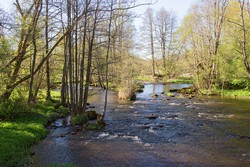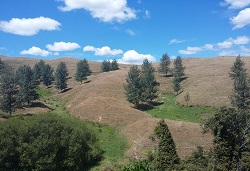Baltic catchment management
Much of the natural rainfall and urban run-off from Baltic countries ends up in the Baltic Sea. Protection of the Sea depends on effective catchment management, although Baltic countries utilise different catchment management styles. The EU-funded BALTICFLOWS(opens in new window) (Monitoring and management of flowing rain water in Baltic Sea catchment areas) project advanced the region’s capacity for catchment management. Members developed the necessary vision for sustainable rainwater management and monitoring. The team also coordinated various regional research efforts, with a view to developing an integrated management plan. To achieve the goals, the consortium focused on developing and implementing a global competitiveness model. BALTICFLOWS’ two main outcomes were a series of major reports and the organisation and hosting of various events. The first report detailed Baltic regional capacities in the fields of rainwater management and water monitoring. Researchers contacted 310 organisations. Most of the 141 survey respondents were micro-organisations at least 20 years old, having no clear budget. The report detailed which organisations were involved with each of seven subfields of water management, and which six areas of operation. Survey results detailed 162 relevant technologies in 8 categories. The report on regional networking detailed project activities carried out or planned. The plans included development of the project vision after its completion. A further report evaluated the transferability of techniques. The document identifies success factors and principles of the best urban storm water management practices. The team recommended which countries should be mentored. In another report, researchers detailed global demand for miniaturised monitoring and European marketing opportunities. The report details the challenges and opportunities for technologies in development, and predicts developments in monitoring in urban catchments. BALTICFLOWS produced numerous other technical reports, making 29 deliverables in total. The project organised 15 formal events and workshops. Highlights included a project-wide workshop in Estonia, a Joint Action Plan release event in Brussels and a water monitoring mentoring event in Poland. BALTICFLOWS fostered regional cooperation on the topic, and identified various bottlenecks hampering research and commercialisation. Baltic nations are hence better able to manage water quality.







